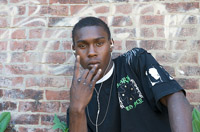Easy to Be Hard: Boys Will Be Boys or Else
How much is too much? When is enough really enough? How many softer boys have to consider suicide when there is no rainbow, only the downpour of slurs like “fag”, “punk” and “sissy”, the scorn that never relents? How long will we refuse them sanctuary, enable their tormentors, tell them to “man up”, and claim that such hurtful abuse is “normal” roughhouse to be endured in order to toughen their skin?
 Within the span of two weeks, two children were sacrificed by our inaction, and our tacit incitement of all boys to target their peers who are too soft, who say words like “marvelous”, who would rather read a book than throw a ball, who embarrass us by mimicking Beyonce instead of Usher. Their schools, the bullies, the parents who raised the bullies, and the prejudices our society re-inscribes with tradition and religion, forced upon them the wretched choice of a cat on a hot tin roof. Jump off or burn. Within the span of two weeks, two children were sacrificed by our inaction, and our tacit incitement of all boys to target their peers who are too soft, who say words like “marvelous”, who would rather read a book than throw a ball, who embarrass us by mimicking Beyonce instead of Usher. Their schools, the bullies, the parents who raised the bullies, and the prejudices our society re-inscribes with tradition and religion, forced upon them the wretched choice of a cat on a hot tin roof. Jump off or burn.
When I was thirteen, my mother once told my brother and I, that she and my father would always accept us, as long as we were not a homosexual or a junkie. I knew in that moment that I did not make the cut. The adults in my neighborhood warned about the wicked ways of homosexual men, “faggots”. They acted like women, they desired men the way men are supposed to desire women. Most importantly, they were seducers on the prowl, fangs a-dripping, ready to lure any naive young male into their sexual sandtrap. In short, they were monsters.
Throughout my boyhood I was called a faggot because my wrist sometimes dangled, or I held my books to my chest “like a girl”. The intent was to prohibit my feminine mannerisms and coerce my conformity to a masculine standard, not to indict my sexual orientation at age eleven. But the shame stuck because I knew that I was attracted to other boys. I tried to “butch up” to no avail, and I prayed to the God of my neighborhood saints to turn me “straight” so that I would not grow up to be “like That”. Fortunately I had friends like Sandra and Karen, not saints but angels of mercy who told me that I was good just as I am. And that most men like that were not like That. Their love spared me years of ongoing self hatred. Their love saved me.
From the classroom to the playground, in the work place and the locker room, “fag” is a universal device used to terrorize all males into upholding an acceptable presentation of gender. Simply put, the programmed fear of being called a “fag”, or suspected of actually being homosexual, drives boys to constantly assert their masculinity and suppress any of their ways (dancing, showing emotions other than anger) that might be considered too feminine. While elementary and high school kids use “gay” and “fag” to call out behaviors that are not sufficiently masculine, these tropes have morphed to also symbolize incompetence or stupidity.
The connection is clear. From boys to men, our obsession with the “fag” is not just about a homophobia, although that is an inseparable element. Our crippling masculine anxieties are grounded in our cultivated fear and disdain of women and all things feminine. To substantiate the link between homophobia and sexism, and our belief that women, and by extension homosexual men, are inferior, we need look no further than the messages we transmit to boys. The most effective way to humiliate a boy is to accuse him of having feminine traits, which is what the “fag” embodies. As one teenage boy put it, “to call someone gay or fag is like the lowest thing you can call someone.” This is largely because it is tantamount to a boy or man being called a girl or a woman. In a patriarchal society rooted in the belief of male superiority and the exercise of male dominance, that is a demotion, a huge loss not only of status, but humanity. Gay men are reviled because they are seen as gender traitors, relinquishing the rewards and undermining the universal rules of patriarchy not matter how masculine or sexist they may be.
Two weeks ago, Carl Joseph-Walker, an 11 year old junior at New Leadership Charter School in Springfield, MA hung himself. He had undergone a year of daily teasing about being gay. Carl loved sports, and was active in his church and other community organizations. Such attributes in a boy often generate wide acceptance among peers. This was not so for Carl whose classmates called him “girlie”, “gay” and “fag” and threatened to beat him up. His mother Sirdeaner L. Walker had alerted school authorities and was not satisfied with their response. While preparing to attend another meeting to address the issue, she found Carl hanging by an extension cord on the second floor of their home. What a bitter irony then that on April 17th, the National Day of Silence that brings attention to anti-LGBT name-calling, bullying and harassment in schools, Carl would have turned 12.
A week later, a DeKalb county fifth-grader Jaheem Herrera was discovered by his 10-year old sister Yerallis hanging from a fabric belt in the bedroom closet. Jaheem faced a barrage of insults from other students at Dunaire Elementary who called him “gay” and “ugly”. They also referred to him as “virgin” mocking his Virgin Islands heritage and accent. Yerallis had witnessed her brother’s harassment and often rushed to his defense. Jaheem’s mother Masika Bermudez had complained to the school which by state law has an anti-bullying policy. To what extent the policy was enforced in this situation remains to be seen as school officials have refused to comment on how Bermudez’s complaints were handled or even acknowledge receipt thereof. Like Ms.Walker, Ms. Bermudez was not satisfied with the response from the school where her son was verbally tortured to the point of taking his own life.
While these tragedies are layered and complex, they hold certain lessons that are sharply apparent. Neither Carl nor
Jaheem reportedly self identified as gay. But we do know that words can hurt though we still pass on disproven adages about sticks and stones. Our communities have invested certain words like “faggot” and “gay” with the power to permanently and irrevocably stain. Kids and adults use them because they work. They wound. They kill. We cannot adequately take on the bullying in our schools until we commit to challenging the violence, xenophobia, sexism and homophobia that operate in our communities, our homes and our hearts. Schools have to become more responsive to the harassment that takes place on their grounds whether or not alerted by parents. Apparently, the officials from both schools minimized the severity of the issue. Their reluctance to act signals gross negligence, irresponsibility and a lack of empathy. In light of these troubling patterns, systemic evaluation and reframing of policy implementation in public and private schools and colleges must be prioritized. We need comprehensive anti-bullying measures to address not only the conduct of harassment but the climate in which it thrives. Adequate mental health services must be provided to address the depression, isolation, and suicidality faced by the bullied and the anger, depression, hostility and violence demonstrated by the bullies.
These children have learned well from earlier generations to outlaw certain differences and prey upon minorities who express gender, race, ethnicity, language differently from the dominant groups. It is one thing to tell a child not to bully another child. It is quite another to teach a child how to respect difference and diversity. We should not stop at telling children not to abuse girls or boys who express feminine tendencies. Children can be raised to appreciate and admire feminine and other traits not commonly associated with masculinity. We must intervene to save our boys from a lifelong patriarchal crusade to control or crush girls, women and boys who are not hard enough. In doing so, we can let go of toxic rearing messages that prepare our boys and men to torment or be tormented in a male cultures that value hardness and macho posturing above real and varied human expression regardless of gender.
We have made significant progress by focusing on racism in our schools, but for too long we, especially men, have avoided reckoning with bigotry based upon gender identity and sexual orientation. Instead of “manning up” by chest pounding assertions, men can step up and revise how we regard women and girls, transgenders, lesbians and gays. There are men who will challenge sexism and homophobia in family settings and private discussions. We need men to “come out” in public forums, confront our school board officials, and otherwise give evidence to the world that we exist. We need more men’s testimony. Get more men to attend Men Stopping Violence trainings, deconstruct our own sexism and become a “new man”. Send a donation to the DeKalb Women’s Rape Crisis Center or AID Atlanta’s Evolution Center for young Black gay men. Talk with other men with whom we share worship or fellowship. Find out what protection does or does not exist for transgender, gay and lesbian students in our schools. We now witness the consequences of turning our backs to peer torture and telling our boys to “man up”. Carl and Jaheem have paid the ultimate price for a “man up” culture. As men let us get up and take responsibility for the communities we share and the children we help to raise. Are we not Men?
***My mother and father have grown to become highly supportive of who I am including my politicized sexual orientation and my efforts to achieve revolution. They dared to learn how to accept a son who was different than what they had expected. They dared to embrace before they fully understood. We have taught each other many lessons.
back to top
|









